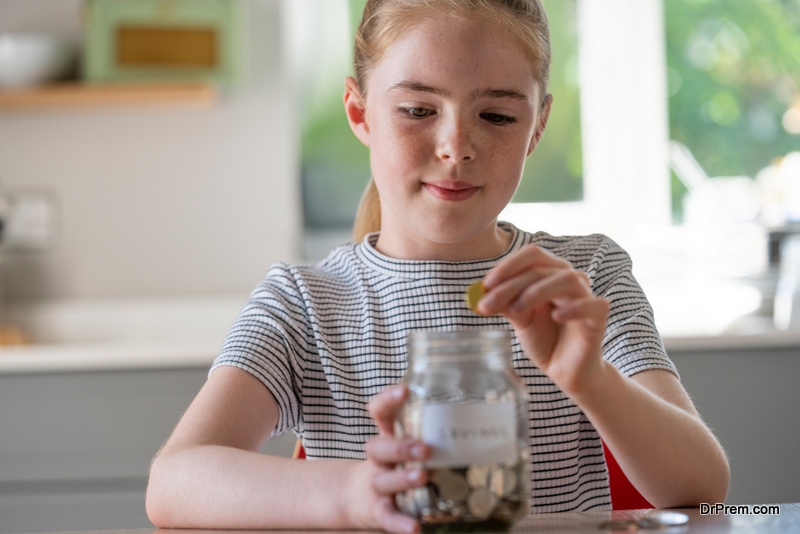It’s something of a taboo topic amongst some of us, but like anything, it tends to be better to get kids used to money from a young age.We’re by no means suggesting that you should provide accountancy training through their summer holidays, but having a grasp of how money works can teach a lot of valuable life lessons.
We don’t have all of the answers, but through today’s post, we will provide a dose of some tried-and-tested tricks that can help your little ones wrap their heads around how money works.
1. Use a clear savings jar
 Sure, piggy banks have a great name, but try to find something transparent to start your children’s first savings experience. While they might appear utterly cute from the outside, once money goes into a piggy bank, it can’t be seen. In some ways, it gets lost down a black hole.
Sure, piggy banks have a great name, but try to find something transparent to start your children’s first savings experience. While they might appear utterly cute from the outside, once money goes into a piggy bank, it can’t be seen. In some ways, it gets lost down a black hole.
This is in contrast to some form of glass jar, which allows your children to see how their money is physically growing (or potentially the opposite!) as they save. It’s a more rewarding way to understand the concept of saving.
2. It’s all about opportunity costs
If your children happen to be younger, you most certainly don’t have to be delving into the finer details at this point. However, valuable lessons can be learned about opportunity costs – and it’s all about how you pitch it.
For example, let’s take a trip to Covent Garden as an example. This is a region that is basking in umpteen children’s shops, from toys to clothes. Unfortunately, most kids want a bit of everything.
This is where a simple lesson about opportunity costs comes into the picture. Instead of the customary ‘no’ response after ‘can, I have…’, explain the options available. If they buy a toy, they won’t have the money to buy sparkly shoes as well.
It’s up to you how far you decide to go with this, but the main lesson is making your child understand the ‘why’ behind purchase decisions.
3. Set examples at home
 The Money Advice Service conducted an interesting paper on how kids pick up financial habits from parents at home.
The Money Advice Service conducted an interesting paper on how kids pick up financial habits from parents at home.
We could write a whole dissertation on how this impacts your kids, but let’s focus on a couple of examples. The first is arguments. If they are used to arguments about money at home, what does that teach them for the future?
Or, what about impulse buys? These are dangerous for any age, but if you are someone who is guilty of this, it stands to reason that your children will pick up on it as well.
While many of us focus on manners and other crucially important behaviours for children, money is often neglected. As it turns out, our relationship with money can have a monumental impact on how they approach it, so getting the basics right from the outset is something that can teach them valuable lessons for life.
Article Submitted By Community Writer




